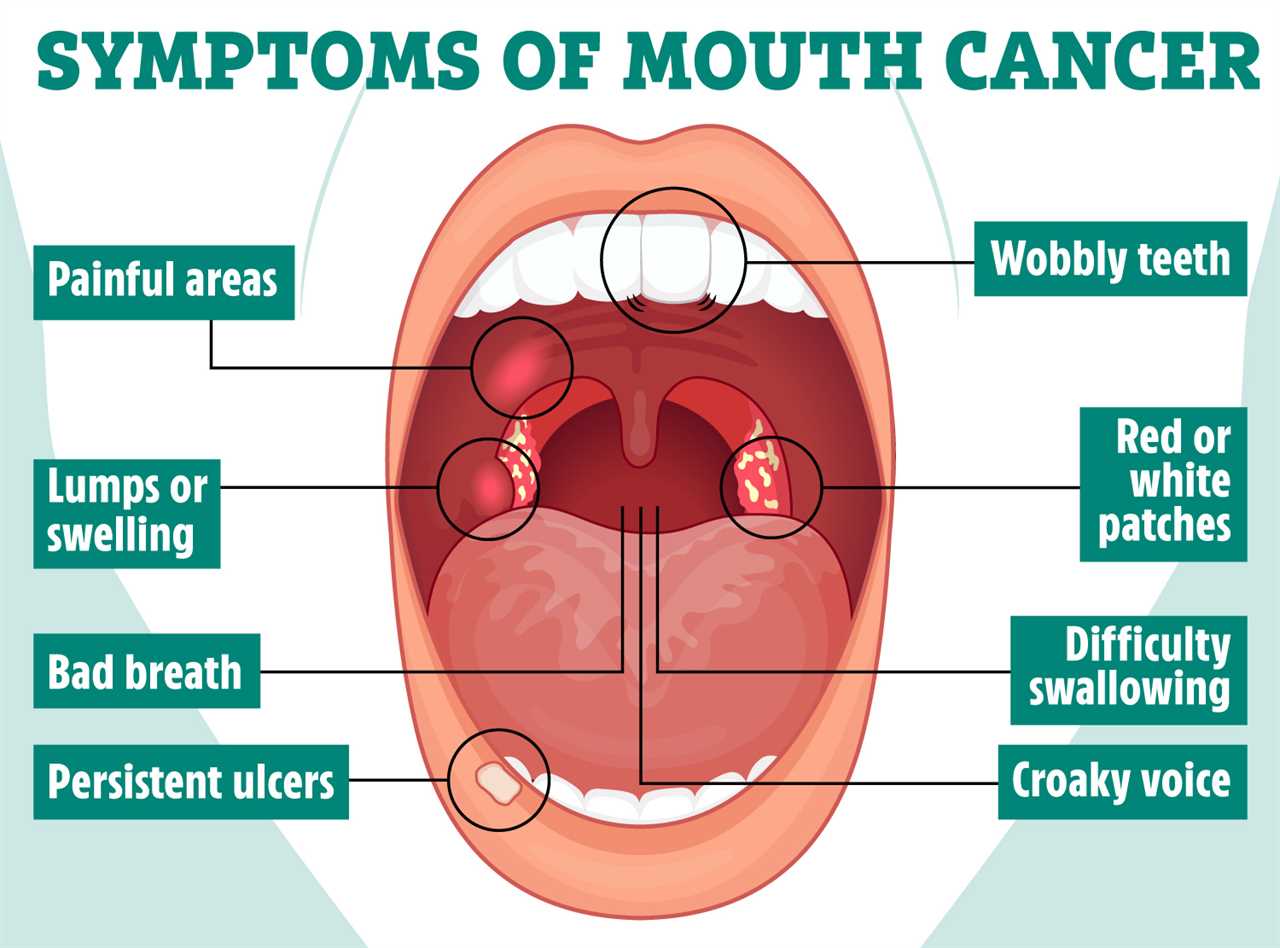
Spotting the Signs: Why Regular Dental Check-ups Are Crucial
Dentists are often the first to spot the signs of mouth cancer during routine check-ups. However, with appointments becoming increasingly difficult to get, thousands of Brits may be living with the disease without even knowing it. Late diagnosis can significantly reduce survival rates, and the number of deaths from mouth cancer has risen almost 50% in the last 10 years. Experts attribute this surge to missed tell-tale signs and a lack of regular dental check-ups.
The Catastrophe Waiting to Happen: The Lack of NHS Dentists
Last year, Michelle Vickers, CEO of the Head and Neck Foundation, expressed concern over the lack of NHS dentists in the UK. She emphasized the crucial role dentists play in fighting and diagnosing oral cancers. Vickers highlighted the need for every dental check-up to include a mouth screen for cancer signs. She also pointed out that the shortage of staff and inadequate funding of NHS dentistry were contributing to the problem.
Take Matters into Your Own Hands: Self-Examination Saves Lives
In the absence of regular dental check-ups, a simple self-examination at home could potentially save your life. By being aware of the signs of mouth cancer, you can take action and seek medical help if needed. Here are 10 signs to look out for:
1. Persistent Ulcers
Ulcers that last for more than three weeks are one of the most common symptoms of oral cancer. These can appear on the inside of the cheeks or lips, as well as on the tongue.
2. Red or White Patches
Red or white patches inside the mouth, which may be painful, could also indicate cancer. While these patches are not cancerous themselves, they can develop into cancer if left untreated.
3. Lumps
Feeling any lumps or swelling inside the mouth, neck, throat, or on the lip should prompt a visit to your GP. Lumps usually indicate an infection rather than cancer, but they can signify the spread of the disease.
4. Painful Areas
Pain, discomfort, or swelling in the mouth that doesn't go away is another common symptom of mouth cancer. Other signs include numbness, tingling, unusual bleeding, or pain when moving the jaw.
5. Difficulty Swallowing
Assessing how easy it is to eat and drink can be a simple at-home check for mouth cancer. Pain or a burning sensation when chewing and swallowing food, as well as the feeling of food sticking in the throat, are potential warning signs.
6. Croaky Voice
Difficulty speaking, hoarseness, or a croaky voice can be symptoms of mouth or throat cancer. These changes in voice may be noticeable to others or yourself.
7. Bad Breath
While bad breath is usually not a cause for concern, it can be worse or more frequent in individuals with mouth cancer. Several methods, such as smelling your wrist or flossing and smelling the floss, can help you check the smell of your breath.
8. Wobbly Teeth
Mouth cancer can cause teeth to loosen or fall out. While a dentist would typically spot this during a check-up, you may also notice it when eating or touching your teeth with your tongue.
9. Earache
Cancer can sometimes cause earache, even if it's not directly in the mouth. If you experience ear pain that persists for a few days, it's worth getting it checked out by your GP.
10. Weight Loss
If you notice unintentional weight loss without trying to lose weight, it could be a cause for concern. Weight loss is a common symptom of various types of cancer, including mouth and oropharyngeal cancer.
The Alarming Rise in Cases: Access to NHS Dentists
According to the Head and Neck Foundation, there were 9,860 cases of mouth cancer in the UK in 2020/21, marking a 12% increase from the previous year. Unfortunately, the number of NHS dentists in England is at its lowest level in a decade, with 90% of practices not accepting new patients. This lack of access to dental care has led to many people resorting to DIY dentistry and living in pain. It has raised concerns about timely diagnoses for mouth cancer.
The Importance of Early Detection
Dental check-ups play a crucial role in identifying the early stages of mouth cancer when treatment is most effective. Late detection significantly reduces the chances of survival, and mouth cancer causes more deaths than car accidents. It is essential to address the access crisis and ensure that everyone has the opportunity to receive timely and life-saving dental care.
Conclusion
Regular dental check-ups are vital for spotting the signs of mouth cancer. However, in today's challenging healthcare landscape, it's essential to be proactive about your own health. By being aware of the symptoms and conducting simple self-examinations, you can detect potential issues and seek medical help promptly. Don't ignore any warning signs and take control of your oral health.






